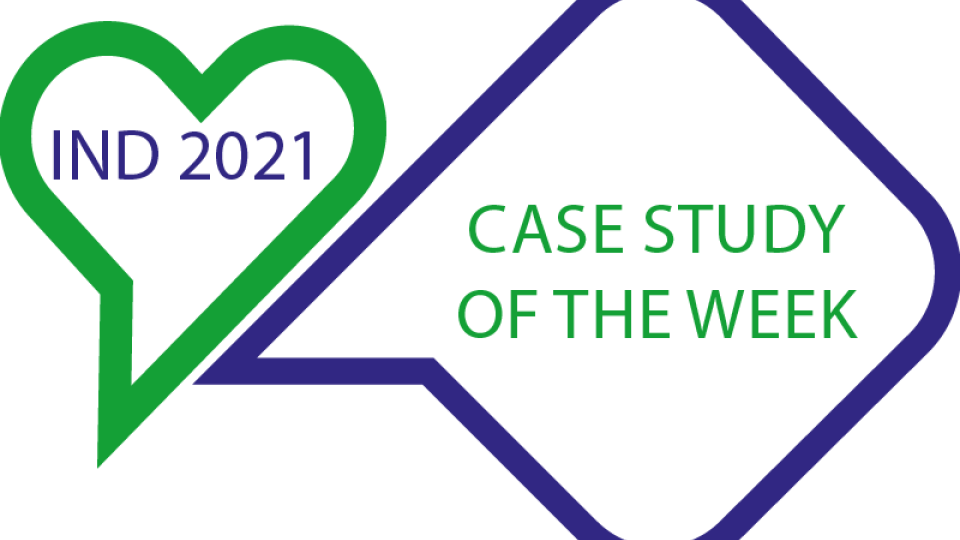A Day in the Life of Nurses at a Fertility Clinic, United Kingdom

Contributor: Louise Mitchell, Registered General Nurse (RGN), PG Certified
In advance of World Fertility Day on 2 November and the launch of the UK’s National Fertility Awareness Week 2021, 2-5 November, we bring you an insight into a day in the working life of nurses at the Bristol Centre for Reproductive Medicine.
For Louise Mitchell, lead nurse for egg donation and fertility nurse manager at the Bristol Centre for Reproductive Medicine (BCRM), no two days are the same in her job and she wouldn’t have it any other way.
Lou divides her time between dealing with the day-to-day management of the clinic and co-ordination of egg donation and recipient treatment cycles. She is also responsible for the nursing staff training and career development, helping new members of staff settle in, and helping nurses achieve all the goals on their competency pathways.
The nurses at BCRM are responsible for carrying out a range of different functions, which makes every working day extremely varied. A day could start with carrying out scans on patients undergoing fertility treatment, followed by embryo transfers or endometrial biopsies, natural killer cell testing and endometrial receptivity analysis. Their work also includes syncing the menstrual cycles of donors and recipients when a fresh embryo transfer is required and ensuring they have everything needed for each stage of the cycle. Lou’s day could finish with planning theatre lists for egg collections or carrying out virtual planning appointments via Zoom.
BCRM is the only clinic with a laboratory in Bristol that can offer long-standing validated results. The team is led by internationally recognised fertility expert Dr Valentine Akande, and their IVF and ICSI fertility treatment results are consistently some of the highest in the country. They provide advice, investigations, treatment and personalise patient care to focus on their individual needs.
Alongside BCRM’s IVF and ICSI treatment, their egg donation programme has grown exponentially. In the early days, they facilitated an egg sharing programme for women who had problems conceiving due to low ovarian reserve and/or poor egg quality. This involved matching recipients with donors that were sharing eggs as part of their own IVF cycle. However, this meant that recipients could face a long wait for a suitable egg donor. With the demand for donor eggs steadily increasing, it became clear that further investment in an egg donation programme was required. In 2019, they began actively recruiting donors, advertising in the print media or through social media channels, with the aim of becoming the UK’s most-recognised egg bank.
Lou describes as ‘the turning point’ the recruitment of an egg donation co-ordinator who has been able to recruit donors altruistically, meaning there is less of a reliance on egg sharing. Her challenging task is to match donors and recipients. SG aims to offer patients two or three donor matches.
Currently, the clinic has over 100 donors at different stages of the egg donation process, meaning that their recipients not only have a choice of donors, but they also have a short wait to treatment. The number of babies born from the egg donation since 2020 is 22 as a minimum, with a couple of pregnancy outcomes still outstanding. The egg bank continues to grow daily with BCRM treating a higher number of recipients and donors, offering the option of fresh or frozen eggs.
One recipient is Anna Dunford from Plymouth who gave birth to baby Maddison in June 2021 after receiving an egg from an anonymous donor. It was the culmination of a journey that began a year after she married her husband Ross in 2014 and tried for a baby “but nothing happened”. It took two years for Anna to be referred to her local fertility unit where she was told she had just a two percent chance of conceiving through IVF using her own eggs. A recommendation from a work colleague led them to BCRM.
“I can’t even put into words how amazing Lou was at every appointment,” said Anna. “When Ross and I walked out, we both looked at each other and agreed this was the place for us and decided to transfer to BCRM straightaway.” Anna and Ross have no immediate plans for more children but have six embryos frozen in storage should they want a brother or sister for their daughter.
BCRM’s attitude towards nursing is very progressive and forward-thinking, according to Lou. They invest in their nurses, developing career pathways including in-house competency-based training programmes and giving support to attend education provided by the British Fertility Society and The Royal College of Obstetricians and Gynaecologists to help them reach their full potential. They have a shared vision.
Lou Mitchell said: “Success rates are obviously important, but for us it is all about patient care. We offer a gold standard, with an excellent team who are invested in the people we support. It’s not just about the bottom line – we go above and beyond. This keeps patients coming back and earns us word-of-mouth referrals which mean the world to us.”